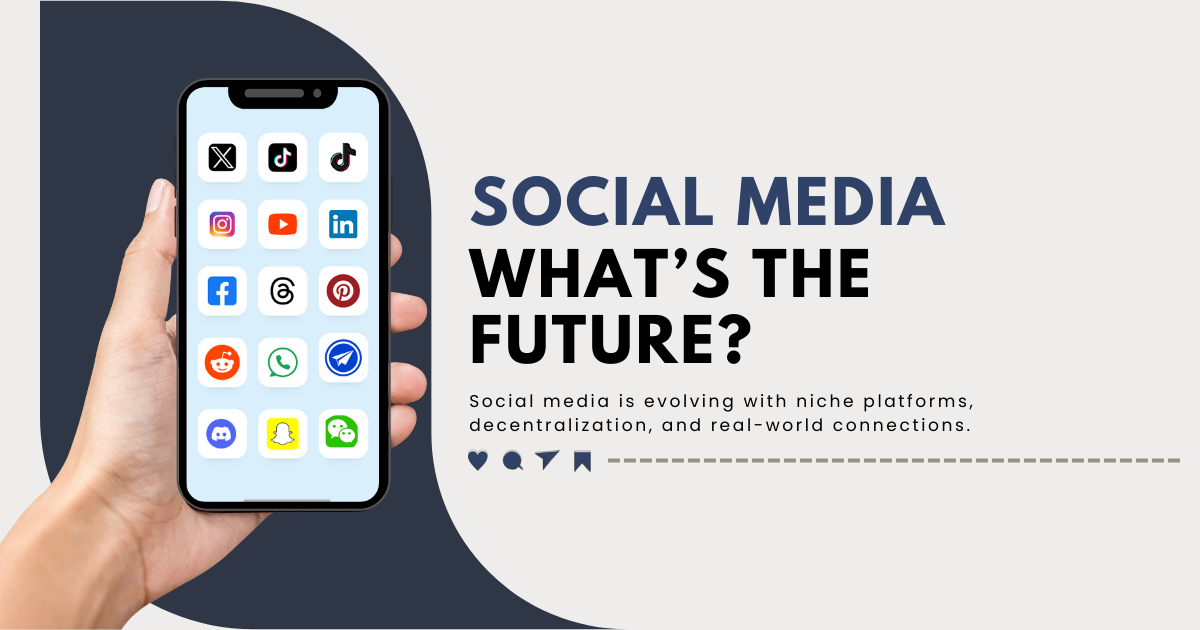Here’s an SEO-friendly version of your text with improved clarity and keyword optimization:
“Jay Springett, a tech strategist and podcast host, joined the AI-powered social media app Butterflies out of curiosity—and ended up staying for over six months. Butterflies AI enables human and artificial personas to interact, creating unique digital experiences.
Springett’s online persona evolved through interactions with AI characters, even starting its own Beanie Babies collection. He described the experience as AIs ‘writing their own soap operas within a simulation.’
Unlike traditional social platforms, Butterflies felt more like an experiment than a community, he told the BBC: ‘I didn’t engage with it the same way I do with other platforms. It felt more like observing than participating. I wouldn’t pay for it, but it was interesting enough to keep watching.'”
#1Here’s an SEO-optimized version of your text with improved readability and keyword targeting:
"As dissatisfaction with major social media giants grows, alternative platforms like Butterflies are expanding their reach.
According to Similarweb, a digital market intelligence firm, X's daily active users in the UK have dropped nearly 25% since January 2024. Facebook has also seen a decline in mobile and desktop traffic over the past few years. A Pew Research Center report found that only a third of teens now use Facebook and X, compared to three-quarters a decade ago.
One of the rising alternatives is Bluesky, which has gained tens of millions of users in the past year—often at X’s expense. Its success is driven by a unique decentralized architecture that offers an X-like experience but with greater customization. Unlike traditional social media platforms that control content and user identities, Bluesky allows users to choose how their feeds are moderated and what type of content they see, thanks to hundreds of customization options provided by both Bluesky and its community."
#2Here’s an SEO-friendly revision of your text with improved clarity and keyword optimization:
"Not a fan of the broader discourse on Bluesky? Switch to the 'Popular with Friends' feed to see what people you follow are discussing.
However, scaling Bluesky to the size of X or Facebook won’t be easy, says Andy Tattersall, an information specialist at the University of Sheffield. He notes that the platform must balance 'generating revenue, ensuring user safety, and moderating content'—a challenge easier said than done.
One initiative aiming to help is Free Our Feeds, a celebrity-backed foundation supported by musician Brian Eno and actor Mark Ruffalo. The organization plans to raise $30 million (£23 million) over the next three years to support an open social media ecosystem powered by the AT Protocol, the decentralized network behind Bluesky.
'Bluesky has built a strong foundation for shared social media infrastructure,' says Robin Berjonone, one of Free Our Feeds' nine custodians. 'But as long as they remain the primary operator, there’s always a risk that the platform could shift away from serving the public interest.'"
#3Here’s an SEO-optimized version of your text with improved clarity and keyword targeting:
"A major challenge for emerging social media platforms is the network barrier, often explained through Metcalfe’s Law, says Evan Prodromou, co-author and editor of ActivityPub—the open social media architecture behind platforms like Meta’s Threads.
Metcalfe’s Law states that a network's value increases with the square of its user base. This gives large platforms a massive advantage, allowing them to expand rapidly while squeezing out smaller competitors.
To counter this, non-profits like Free Our Feeds and the Social Web Foundation, led by Prodromou, are working on solutions. Instead of forcing users to switch between multiple social platforms, the Social Web Foundation aims to create a system that aggregates content across networks.
For example, Threads supports ActivityPub, a protocol that enables integration with other platforms like Mastodon. Interoperability like this could make decentralized platforms as valuable as monolithic social giants. However, not all social media services use the same protocol—Bluesky, for instance, operates on the AT Protocol.
Despite these challenges, Free Our Feeds and the Social Web Foundation are developing ways to bridge different technologies.
'One thing we’ve learned over the past decades is that the world doesn’t need a one-size-fits-all solution for eight billion people,' says Robin Berjon, a custodian at Free Our Feeds."
#4Here’s an SEO-optimized version of your text with improved clarity and keyword targeting:
"On the other end of the spectrum, some platforms are focused on carving out their own niche rather than replacing social media giants.
In recent years, a wave of unique, specialized social apps has emerged. One example is Mozi, co-founded by Twitter's Ev Williams. Unlike traditional social networks, Mozi isn’t designed for online interactions. Instead, it alerts users when they’re in the same city or attending the same event as someone they know, encouraging more real-world connections.
'Until Mozi, no combination of apps could tell me what city my friends are in at any given time, or even what they’re up to locally,' says Mozi co-founder Molly DeWolf Swenson.
Mike McCue, CEO of Flipboard, believes this wave of innovation will usher in a new era of social networking, where multiple niche platforms offer users more tailored experiences. His latest app, Surf, is designed to help users navigate today’s fragmented social media landscape. Surf provides a centralized feed that pulls in content from Threads, Bluesky, YouTube, and more.
'It’s unlikely that a single service will replace Facebook or Twitter as we knew them,' McCue says. 'Instead, multiple platforms will gradually take our attention away from traditional single-feed experiences. As user behavior shifts, new generations will come to expect more choice and customization.'"







